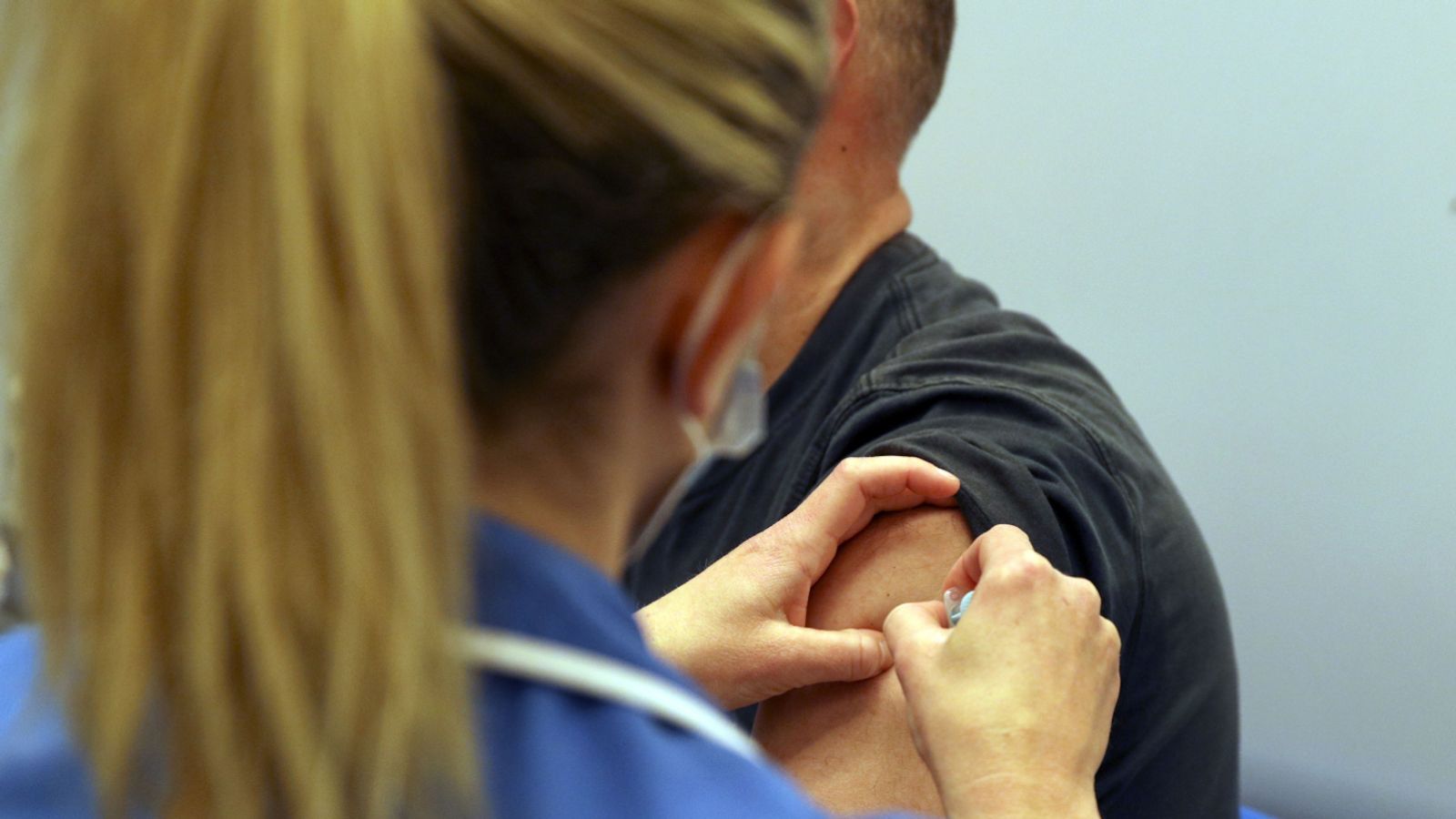Delaying the second dose of a COVID vaccine so more people can get a first dose could cut deaths by up to 20%, a study suggests.
The UK chose to use this strategy at the start of its rollout in December, with most people getting their second dose around 12 weeks after their first.
That’s despite a recommended interval of three weeks for the Pfizer jab and four to 12 weeks for the AstraZeneca vaccine.
Live COVID updates from UK and around world
The peer-reviewed paper, published in the British Medical Journal, used a simulation model to test a daily rollout rate of 0.1%, 0.3% and 1% of the population.
Researchers found estimated deaths per 100,000 people fell from 442 to 402, 241 to 204, and 86 to 50 respectively – comparing standard dosing with a delayed strategy.
The results assume a first vaccine offers 80% protection, which is the estimate of the US Centers for Disease Control and Prevention.
The US study found the delayed approach worked especially well for under-65s at all speeds of rollout tested.
“The results suggest that, under specific conditions, a decrease in cumulative mortality, infections, and hospital admissions can be achieved when the second dose of vaccine is delayed,” said the authors – who include experts from the Harvard School of Public Health and the Massachusetts Institute of Technology.
Subscribe to the Daily podcast on Apple Podcasts, Google Podcasts, Spotify, Spreaker
“This was most significant when the second dose was delayed in people below 65 years of age, with second doses still prioritised for those over 65.
“The conditions in which these benefits were observed included the first-dose vaccine efficacy being above 70% and vaccination rates remaining below 1% of the population per day.”
Dr Peter English, a retired consultant in communicable disease control, said the UK decision to delay second doses had “proven highly effective”.
He said concerns about pushing back the second dose were “misplaced”.
“Everything we already knew about vaccines also tells us that a longer prime-boost interval enhances the breadth and depth of the immune response, giving longer-lasting immunity that is likely to provide greater cross-protection against variant strains,” he said.
“There is relatively little knowledge about this specifically related to COVID-19 vaccines – although such data as we have seen is consistent with this.
“It goes beyond this paper; but it seems likely that increasing the prime-boost interval will lead to better, longer-lasting immunity, as well as protecting more people more quickly.”
